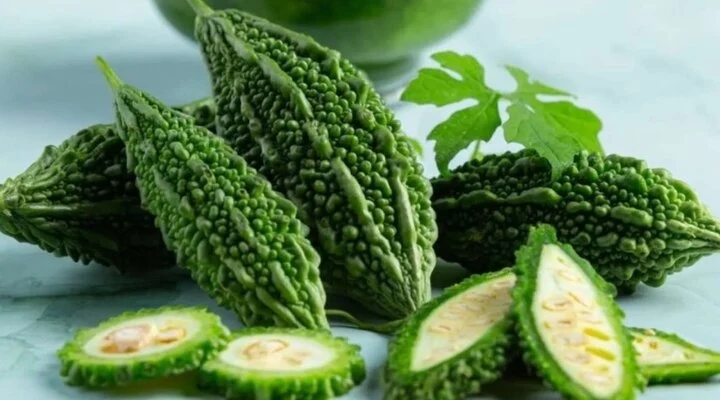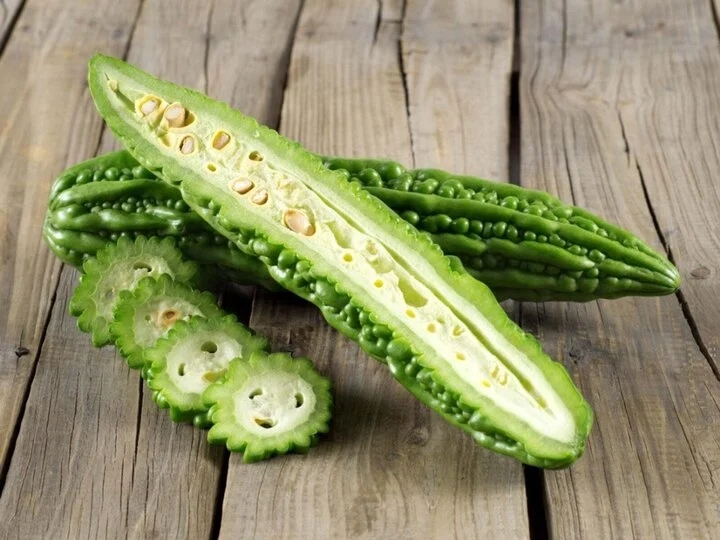Bitter melon, also known as bitter gourd, has cooling properties and is especially beneficial during hot summers. Consuming bitter melon helps cool the body down, reducing the risk of mouth ulcers and rashes caused by internal heat.
Additionally, bitter melon is rich in antioxidants, which help prevent the formation of free radicals, thereby lowering the chances of developing chronic illnesses such as cancer and cardiovascular diseases. The vitamin C content in bitter melon also boosts immunity and protects the body from infections.
Where does the bitterness of bitter melon come from?
Despite its nutritional benefits, the distinct bitterness of bitter melon makes it unappealing to many, who tend to avoid dishes made with this vegetable. Those who wish to mitigate the bitterness often want to know its source so they can adjust the taste accordingly.
The bitterness of bitter melon comes from specific parts of the vegetable, namely:

Where does the bitterness of bitter melon come from? (Image: Freepik)
The Flesh
The flesh of the bitter melon, especially the part closer to the seeds, contains high levels of cucurbitacin, a bitter-tasting compound. Cucurbitacin is a natural substance that not only contributes to the vegetable’s distinctive bitterness but also offers various health benefits, including anti-inflammatory properties, immune-boosting effects, and potential therapeutic benefits for certain medical conditions.
The Skin
The skin of the bitter melon also contains small amounts of cucurbitacin. When cooked, the skin retains its bitterness, although the intensity may be reduced when combined with other ingredients. Apart from the bitter compound, the skin is also a good source of fiber and essential vitamins.
The Seeds and Surrounding Membrane
The seeds of the bitter melon and the membrane surrounding them are also bitter. In some dishes, the seeds are removed to reduce the overall bitterness. However, the seeds and membrane are nutrient-dense, so removing them should be done thoughtfully to avoid losing the nutritional value of the vegetable.
How to Reduce the Bitterness of Bitter Melon
Given that the bitterness of bitter melon primarily comes from the flesh, seeds, and inner white membrane, you can reduce the bitterness using the following methods.

To minimize the bitterness of bitter melon, you can try techniques such as salting, blanching, etc. (Image: Recipes)
Remove the seeds and inner white membrane: The inner white membrane is the primary source of bitterness. Use a stainless steel spoon to scrape off as much of this membrane as possible if you want to reduce the bitterness.
Slice and salt: After removing the inner membrane, slice the bitter melon thinly. Place the slices in a large bowl, add a spoonful of salt, and toss to coat. Let it sit for 8-10 minutes, then drain and rinse under running water to remove any residual bitterness and saltiness.
Blanch: Blanching bitter melon in boiling water for 1-2 minutes before cooking can help reduce its bitterness without losing too many nutrients.
Soak: Cut the bitter melon lengthwise, remove the seeds, and slice it thinly. Rinse the slices with cold water 3-4 times to reduce the bitterness and make the melon taste sweeter.
Chill: Marinate bitter melon in ice or wrap it in plastic wrap and place it in the refrigerator. The low temperature will significantly reduce the bitterness and make the melon crisper and more delicious.
Combine with other ingredients: Cooking bitter melon with other ingredients like meat, shrimp, or eggs can help balance out the bitterness.
How to Choose Fresh Bitter Melon
The freshness of bitter melon also affects its bitterness. Here are some tips for choosing fresh bitter melon:
Color: Look for a vibrant green color, free from yellowing or wilting. A bright green color indicates freshness and higher water content, which can help mitigate bitterness.
Shape: Bitter melons with pointed ends tend to taste better than those with rounded ends. Choose melons of moderate size, neither too big nor too small.
Feel: The melon should feel firm to the touch, with no soft or spongy spots when gently pressed.
Don’t let the bitterness of bitter melon deter you from enjoying its nutritional benefits.
According to VTC News





































